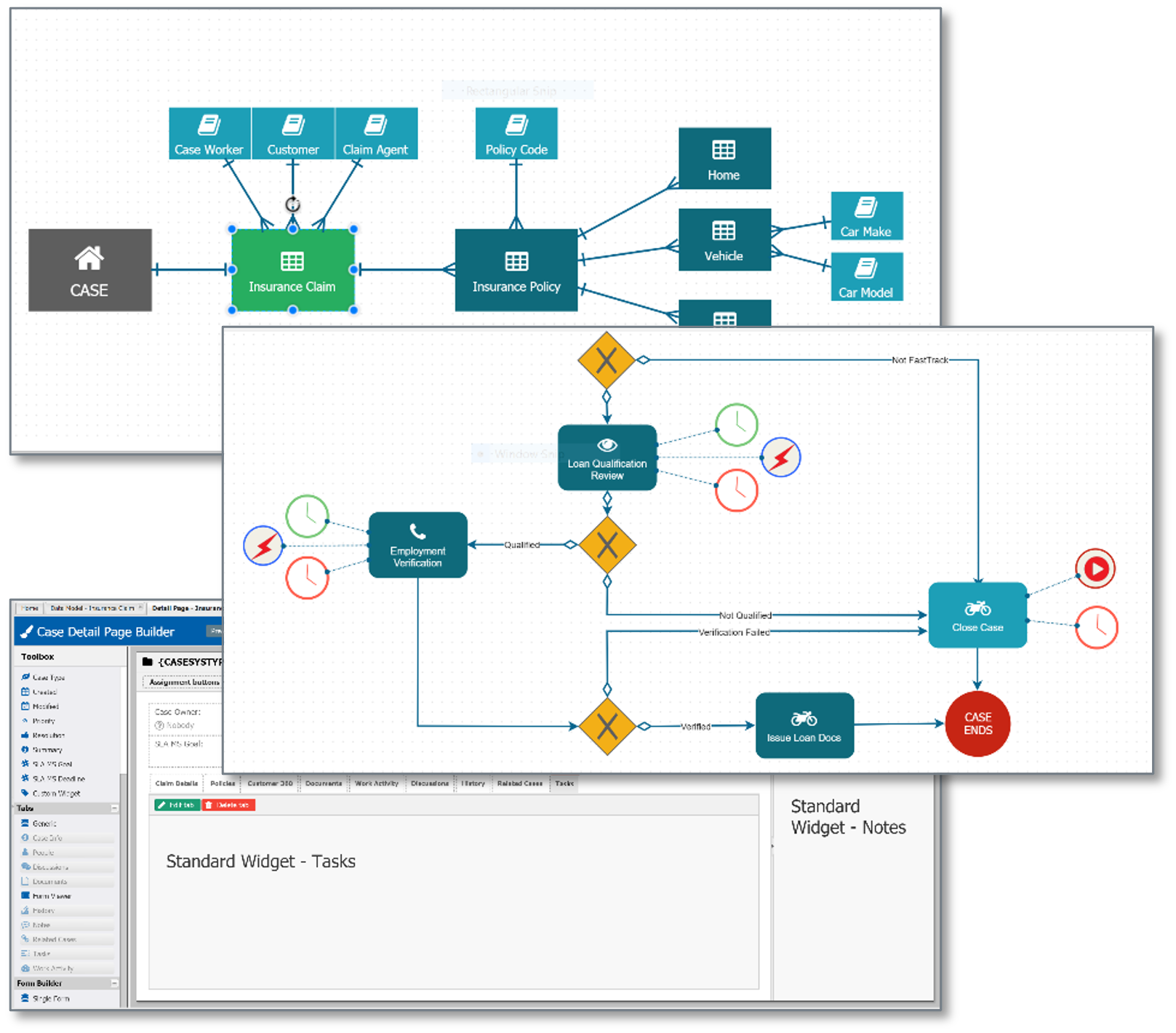Case Types
Analyze your business procedures, demands, and requirements to process work as quickly as possible. Following the identification and evaluation of the critical components of your job, you can make the most of the opportunities offered by the DCM Platform to define and illustrate your business cases by developing Case Types.
Through case management, you may address business processes on the DCM Platform. This approach is used when you know exactly what you want to accomplish but are unsure of or flexible about how your business process will unfold. You can use tools on the DCM Platform to accomplish your business goals in a flexible way so that you can adapt to changing conditions.
When processing several instances of the same business case, such as examining job applicant applications, a Case Type is a template for work that you may use to represent your business process visually. You can specify the steps your job takes, the individuals engaged in processing a case, and the information needed by the case by creating a case type. You can accomplish your company processes successfully and save time as a result.
To maximize AppBase’s case management features, analyze your business processes and requirements to identify the most efficient way to complete your work. Once you’ve identified the main elements of your work, you can define them as case types, and create a visual representation of your business processes.
Case types are templates that can be used to process multiple instances of the same business case, such as reviewing applications from job candidates. By creating a case type, you define the path your work will follow, the people involved in processing a case, and the data that the case requires. This will save you time and ensure that your business processes can reach a successful resolution.
AppBase offers multiple tools and possibilities so that you can design your case types to meet your unique business needs. Before you start using AppBase to process your work, consider the following factors:
- The goal of the case
- The steps required to complete the case
- The people involved in completing the case
- The data required to complete the case
Once you’ve considered these factors, you can start creating case types that will help you improve efficiency and productivity.

